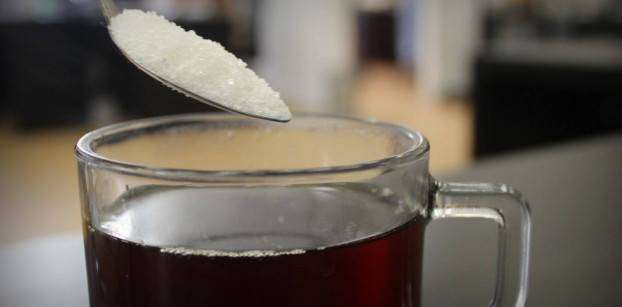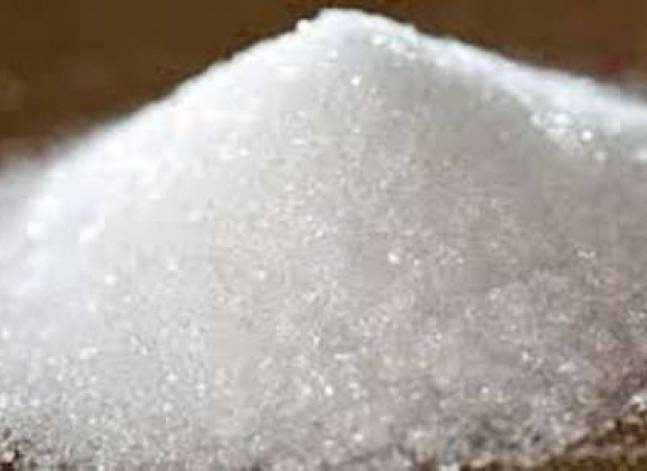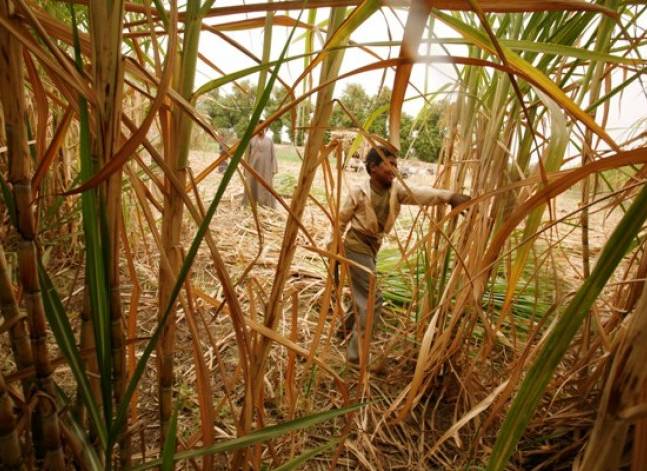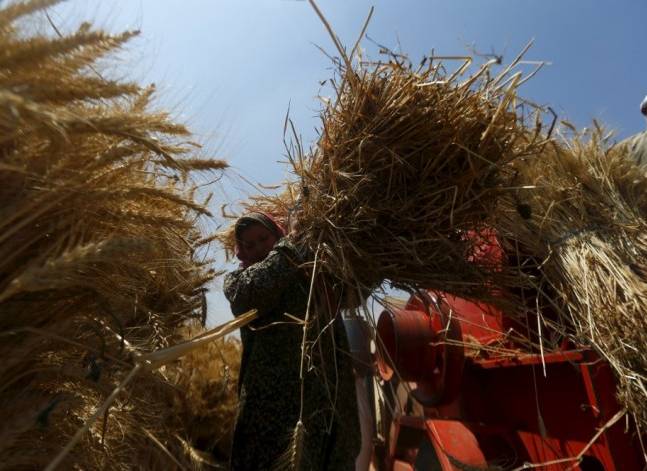Latest NEWS
- Aswat Masriya, the last word
- Roundup of Egypt's press headlines on March 15, 2017
- Roundup of Egypt's press headlines on March 14, 2017
- Former Egyptian President Hosni Mubarak to be released: lawyer
- Roundup of Egypt's press headlines on March 13, 2017
- Egypt's capital set to grow by half a million in 2017
- Egypt's wheat reserves to double with start of harvest -supply min
- Roundup of Egypt's press headlines on March 12, 2017
Sugar shortages hit Egyptian markets
CAIRO, Oct 12 (Aswat Masriya) - After a three-hour hunt for sugar in a number of shops in Giza, one consumer was able to find one bag at a supermarket, but at the price of EGP 10.
The same 1 kg bag was sold at EGP 5 about two months ago.
"We hear daily that the government has supplied sugar, but the reality is that sugar is lacking from all supermarkets, and even consumer complexes, and as soon as it becomes available, it runs out," Yasmin, an Egyptian consumer, said.
She is not alone as other consumers have reported deficiency in sugar supply at more than one commercial chain.
An Aswat Masriya reporter went for a tour in Downtown Cairo Tuesday night in search for sugar, but did not find any at the government's Al Ahram Markets' branches and other shops, however it was available at some of the large commercial chains.
The manager of an Al-Ahram Market branch, Ashraf, told Aswat Masriya that the quantities of sugar supplied to the market have declined since last month, adding that nothing has arrived in the past two days.
"The Ahram Market always had no less than 2 tonnes of sugar in stock, however last month the quantities supplied to us declined by almost half and are sold in just hours due to the increasing demand," he said.
Al-Ahram Market is one of the government complexes where sugar is sold at a subsidised price of EGP 5, resulting in high demand. It also sells sugar to consumers who are not under the umbrella of the supply ministry's subsidy system for the same subsidised price.
"We even set a limit of 3 kg of sugar per person in order to allow a larger number of people to buy it," Ashraf added.
What is the main reason behind the crisis?
According to a source at a private sugar company who preferred to remain anonymous, the main reason behind the decline in sugar and the associated price hike is the new regulations imposed by the ministry of supply on the distribution of sugar.
New regulations have limited the distribution of sugar to the Holding Company for Food Industries only, leaving out hundreds of traders and packaging factories.
There are five public sector companies operating in Egypt in sugar production. Also in operation are two other private sector companies: the Saudi company Savola and Nile Sugar Company, owned by businessman Naguib Sawiris.
Egypt consumes about 3.2 million tonnes of sugar annually but produces just over 2 million tonnes leaving a gap of slightly over a million tonnes a year for imports.
Supply Minister Mohamed Ali al-Sheikh, who assumed the post early September, decided to restrict sugar output to the Holding Company for Food Industries, which owns only two distributing companies, the source said.
"Distribution used to occur through hundreds of traders and small factories, but the government decided that they are greedy and manipulate prices, so it chose to limit distribution to one entity, which is the Holding Company," the source added.
This has led to a noticeable deficiency in sugar supply as the Holding Company has limited capacity in distribution, thus restricting supply to large chains and factories that use sugar as production input, according to the source.
As for the private companies, their production relies on sugar beet, whose production season had ended a few month ago, so their stock is almost depleted, the same source said.
The Supply Ministry's official spokesperson Mohamed Askar declined to comment on the new method for distributing sugar.
Askar only said that a meeting was held between the supply minister and members of the commercial chambers and large commercial chains to address the crisis and that it "will be solved within days."
Other reasons?
The method of distribution is not the only reason behind the crisis, but other factors like the dollar shortage and the global increase in sugar prices have contributed to the problem, prompting private sector companies to stop importing.
The Food and Agriculture Organisation of the United Nations (FAO) said last week that food prices have risen in September to their highest since March 2015, with sugar taking the lead.
FAO stated that sugar prices increased by 6.7 percent in September compared to August, and attributing this largely to bad weather conditions in Brazil, the world's biggest producer and exporter of sugar.
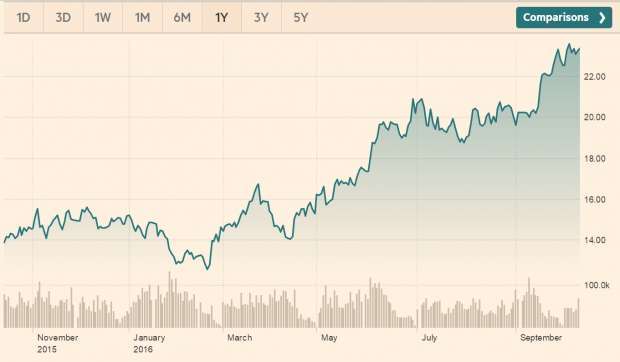
Changes in the global price of sugar over a year according to the Financial Times
The source mentioned that private sector companies could have imported raw sugar and then refined it in order to address supply shortages, however foreign currency shortages presented an obstacle.
In May, the Egyptian government decided to exempt raw sugar importers of customs, while fees of EGP 900/ ton were imposed on white sugar exports.
Another factor contributing to the crisis is that one of the major factories refining sugar, affiliated with Savola, switched to exporting all its output of white sugar since the beginning of the year instead of directing it towards the local market due to the dollar crisis.
A source from Savola said that exporting the factory's output is "among the main reasons" behind the crisis as it contributed to the deficiency in supply.
"Savola imports raw sugar in dollars, and refines it in its factory," the source said. "It used to sell part of it in the local market and export the rest, but with the surge in dollar price in Egypt, the company preferred to export all its output, which is about 450,000 tonnes annually in order to benefit from the global increase in sugar prices."
The supply ministry has announced several times in the recent period that it imported large quantities of sugar.
It said in a statement on Tuesday that current reserves should be enough until February.
However, sources from the two private companies said that the crisis could last until the production season in Jan. and Feb. despite attempts to quell it through government imports.
(This article was translated to English by Nourhan Fahmy.)

